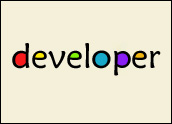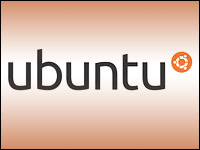
Since Jimmy Wales’ announcment last week that he plans to launch a newsearch engine in Q1 2007, speculation has been rife over what it could mean for the search industry — and specifically for Google.
Wales, the founder ofWikipedia, is one of the few Web 2.0 players with enough clout to take on the search giant.
Although he has not revealed much more than his intention to launch a new site next year, the basics are widely understood: The search engine, called “Wikiasari,” will rely on volunteer users, and it will be based on Apache’s open source search technology; the code will be made generally available. Also, users will be able to rank results according to personal preferences.
Wikiasari reportedly will be a for-profit operation backed by venture capital money from several high-profile sources, including Amazon.com.
Finally, the open source search technology and ranking methodologies will be based on Wikipedia’s model of user-driven content — a sharp contrast to Google’s proprietary search algorithms.
People Power
“This will be a people-powered search engine,” Cord Silverstein, director of engagement marketing for Capstrat told LinuxInsider. The search model typified by the major search engine providers uses proprietary algorithms to determine how results are ranked, regardless of the user’s preferences, he said.
“If I type in ‘New York hotels,’ I should get a very different set of results as a potential tourist than if DonaldTrump types [it],” he said, adding that the personalization of results will be a key differentiator.
“One of the problems with Google is that it provides the same information to the world over and doesn’t take user perspective into account,” said Mary Hodder, founder and CEO of Dabble.
In general, there are three areas in which search could be improved: user context, the algorithms for relevance, and the quality of responses, she noted.
Quality of Information
Wales “appears as though he is thinking about the quality of information,” Hodder observed. Even if he never gets around to the other two issues, “if he can fix that one point, it will advance search technology dramatically,” she added.
Not everybody is sold on the idea of a wiki-based search engine, though. “It strikes me as an invitation to search engine spam,” Miki Dzugan, president and chief marketing guru at Rapport Online, told LinuxInsider, referring to the practice of users submitting and resubmitting sites that offer little content value but have been tweaked to score high in search results.
For example, “Open Directory, with thousands of volunteer editors, is not able to keep up with the new sites that continually are coming online. The publicly available submission form is bombarded with automated submissions, as well as persistent promoters of dubious Web sites that need to be weeded out. Human weeding alone cannot keep up with the spam,” said Dzugan.
Social-based search is not likely to solve the huge searchspam problem. “While there is potential for socially generated and edited search rankings to be relevant in some areas, the same tools and controls make it exponentially easier for spammers to game the system to their own ends,” said Anthony Iaffaldano, director of marketing at Reprise Media.
Nonetheless, “there is plenty of room left in this market for an engine that offers a different take on search results than what’s currently available to users — an army of thinly veiled Google clones,” he said, adding that “Wikiasari has anopportunity to change the market’s perception of what search should be.”
Google Killer?
Wikiasari’s most intriguing aspect could be its potential to challenge Google — if not in actual usage, then in branding. Currently, Google is synonymous with search — indeed, Webster’s dictionary defines “googling” as a form of search.
“Where Wikiasari and Google differ is on the notion of transparency. When processes become more democratic, people have a tendency to swarm behind them,” Steven Keith, director of interactive communication for Capstrat, told LinuxInsider.
Also, Google has long lost the advantage of being an underdog, which would be Wikiasari’s strength. “I think people seeGoogle as the entity that will knock Microsoft down and Wikiasari as the entity that will knock Google down,” claimed Keith.
Google, though, is already addressing the issue of transparency. “We have already seen some substantial moves from Google with [its] launch of a webmaster section and some interesting toolsets,” said Capstrat’s Silverstein.
The Third Way
Even though it would make for great drama, Wikiasari will not destroy Google.
“The search engine market is still in growth mode,” said Riza C. Berkan, founder and CEO of Hakia, a meaning-based search engine Web site.
Most people use Google, and that is not likely to change, he said. Increasingly, though, more people are using multiplesearch engines to find content.
“In this market, there is always room for new ideas,” he added.





















































